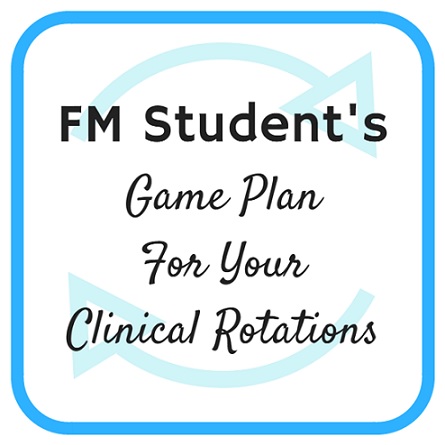Red Flags on the Residency Interview Trail
Fourth Years, Be Warned
Interview season is stressful, new and confusing, and for the Class of 2017 rapidly approaching, we’ve compiled our take on what constitutes red flags on the residency interview trail – key warning signs of programs you’ll want to avoid or at least take off your rank list.
Farrah’s Red Flags
 Family Medicine is a specialty that tends to foster a friendly, supportive atmosphere, but every now and again, you may come across a “malignant” program. Aside from wanting to interview well, you also want to make sure that you match into a program that will help you to succeed.
Family Medicine is a specialty that tends to foster a friendly, supportive atmosphere, but every now and again, you may come across a “malignant” program. Aside from wanting to interview well, you also want to make sure that you match into a program that will help you to succeed.
- Look for happy residents. You’ll be spending a lot of time here with these people over the next 3 years. If you’re getting a lot of doom-and-gloom mentalities and burnt-out residents who tell you, “It’s fine; you just take it a day at a time,” stay far, far away.
- Pay attention to how everyone interacts. The happiest residents tend to be the ones who will volunteer for tours, interviews, and dinners. If possible, see if you can speak to or interact with some of the others as well. Do the residents know each other and do they spend time with each other outside of work? Do they seem comfortable with their attendings? How does the faculty talk about the residents?
- Look at the graduation rate. If you notice a discrepancy in the number of residencies graduating from the program each year, ask about the graduation rate and the number/reason for transfers.
- Pay attention to what they’re asking you. A few questions on how you deal with stress and whether or not you have an outlet and/or a good support system is normal, but when your entire interview day is filled with only these questions, (along with “How do you respond to harsh criticism and getting yelled at in front of everyone?”), you might want to reconsider ranking that program.
- Go with your gut. This is likely something that you’ll hear again and again–no matter how good a program seems to you on paper, if something feels “off” when you’re there, do not rank that program.

Pixie’s Red Flags
Interviews are your opportunity to find the right fit and discover which environments are the best place for you to grow and learn. However, there are generic red flags to beware of no matter what your personality is. I recommend you consider sources of info with a grain of salt, ie: a recent program graduate, current resident, SDN poster or a fellow med student (who may be a gunner) are not equivalent in trust.
- Unhappy residents. If everyone seems desperately sad or borderline suicidal there is a serious problem present. Run away.
- Lack of Enthusiasm. If none of the residents demonstrate enthusiasm or excitement for their program, be afraid. You will almost always be meeting PGY2 and PGY3 residents, who should have the time to demonstrate their passion for their career, and a vested interest in talking with potential future interns.
- Residents don’t Hang Out. This is family medicine, and we’re a friendly group, so be wary of co-residents who never spend time together. If they sound like they avoid each other outside of work, no matter how good their reasons are, there’s an issue with the program. You’re stuck with these folks for three years, be concerned if program leadership are terrible judges of character and personality.
- Call room location. Where they put you to sleep for ten minutes can say a lot about a program. If it’s off a high-traffic at-all-hours hallway then they don’t think much about their residents. If they warn you you won’t sleep, but give you the space to do so in a less frequented area, they at least care enough to give you quiet.
- Access to Residents. If a program always has the PD or attendings present, and you never get an opportunity to be alone with residents, run away. This is a major red flag, and a serious warning sign that all is NOT well in Denmark. Most programs know better, and either invite you to a pre-interview dinner before or after interview day, and many also give you solo time with residents as part of the day itself.
- Negative Focus. If every interviewer brings up questions that skew towards “How do you manage stress,” or “Do you cry easily” you have cause for concern. This needs only to be addressed once, and repetition should breed wariness on your part.
- Rudeness. I can’t abide it. If anyone, whether the program director, an attending/faculty member or current resident serves you rudeness or contempt, remain polite, and wipe them off your rank list.
Ultimately, go with your gut and trust your instincts. No matter how good it looks on paper, if it doesn’t feel right then it’s not the program for you.






great post, keeping this for next year!!!
Thanks, Jani! Best of luck to you next year! :]